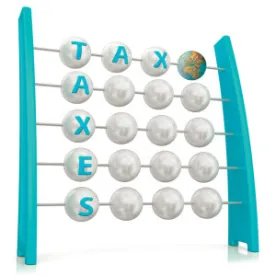Legislative Activity
As June Nears, Tax-Writers Press Forward with Tax Reform Proposals
Following last week’s Senate Finance Committee hearing to discuss Chairman Orrin Hatch’s (R-UT) “corporate integration” proposal as relates to the pros and cons of a dividends paid deduction regime, this week, on Tuesday, May 24, the Committee will hold its second in a series of hearings, and will examine how corporate integration could be used to neutralize the tax Code’s treatment of a corporation’s decision to raise capital with debt versus equity. It is still expected that Chairman Hatch will release his corporate integration proposal at some point in June, though as has been seen in the debate thus far, there remain various issues with the proposal (e.g., its potential impact on retirement plans and tax exempts, etc.) that still need to be resolved.
For its part, the House Ways and Means Committee will also hold a hearing this week to continue its ongoing discussions regarding tax reform. Specifically, the House Ways and Means Tax Policy Subcommittee will hold a hearing on Wednesday, May 25, to take “another step in advancing [the Tax Policy Subcommittee’s] pro-growth ideas” which center around “reforming the broken tax code.” Note that last week, following many months of work on his international tax reform baseline (i.e., territorial system of taxation, preferential tax treatment for certain intellectual property, and lower corporate tax rates), Subcommittee Chairman Charles Boustany (R-LA) announced that he may drop the “Innovation Box” portion of his proposal if the Committee ultimately decides they prefer to move forward without such a regime. As with Chairman Hatch’s integration proposal, the House Task Force on Tax Reform is expected to release its tax reform “blueprint” in June as well.
Wyden, Levin Roll Out Messaging Pieces
Last Tuesday, May 17, Senate Finance Committee Ranking Member Ron Wyden (D-OR) released draft legislation that revises the tax treatment of various financial products – a bill which took much of its inspiration from former House Ways and Means Committee Chairman Dave Camp’s (R-MI) proposal, which aimed to treat most derivatives as mark-to-market assets and provided a hedging exception. The legislation aims to “prevent sophisticated taxpayers from using derivative contracts to avoid paying taxes on their underlying investments.”
On the very same day, House Ways and Means Committee Ranking Member Sander Levin (D-MI) introduced legislation further targeting corporate tax inversions, this time taking aim at “hopscotch” loans (a maneuver whereby U.S. companies avoid taxes on dividends by making a loan to a foreign parent instead of the former U.S. parent) and “de-controlling” (a tactic corporations use to lower the U.S. ownership of a foreign entity below the level that triggers U.S. tax).
While neither piece of legislation is expected to move, Democratic tax-writers are taking cues from their Republican tax-writers and released these “messaging pieces” as Democrats aim to spotlight their own, near-term approach to tax reform. Note, however, as Democrats focus their efforts to do away with corporate tax “loopholes,” Republicans stand by the belief that inversions are a symptom of a broken tax code and continue to call for comprehensive tax reform.
This Week’s Hearings:
-
May 24: The House Ways and Means Committee will hold a hearing titled “Moving America’s Families Forward: Setting Priorities for Reducing Poverty and Expanding Opportunity.”
-
May 24: The Senate Committee on Finance will hold a hearing titled “Debt versus Equity: Corporate Integration Considerations.”
-
May 24: The House Judiciary Committee will hold a hearing titled “Examining the Allegations of Misconduct Against IRS Commissioner John Koskinen, Part I.” witnesses will be
-
May 25: The House Ways and Means Committee will hold a hearing titled “Protecting Small Business from IRS Abuse (Part II).”
-
May 25: The House Ways and Means Subcommittee on Tax Policy will hold a hearing titled “Perspectives on the Need for Tax Reform.”
Regulatory Activity
Treasury to Take a Closer Look at Earnings Stripping Rules
On April 4, 2016, the Department of the Treasury proposed regulations that would authorize the Commissioner to treat certain related-party interests in a corporation as indebtedness in part and stock in part for federal tax purposes, and establish threshold documentation requirements that must be satisfied in order for certain related-party interests in a corporation to be treated as indebtedness for federal tax purposes. The proposed regulations also would treat as stock certain related-party interests that otherwise would be treated as indebtedness for federal tax purposes..
Following the proposal’s publication in the Federal Register, there has been significant concern from industry about the newest round of anti-inversion regulations being overly-broad (e.g., the potential impact on “cash pooling” practices). In fact, Brett York, an attorney-adviser in the Office of Tax Legislative Counsel, recently suggested that Treasury is examining the documentation requirements under the rules (which would require taxpayers to prove their loans involve genuine debt, including being able to show they have a reasonable expectation that a loan will be repaid) in the context of cash pooling. Beyond concerns over the impact of the rules on cash pooling specifically, recently, nearly two dozen business groups sent a letter to Treasury, urging the Department to slow down its “arbitrarily rapid timeline” for both finalizing and implementing the regulations. The groups have also asked that Treasury “at a minimum” delay the comment period end date from July 7, 2016, to October 5, 2016, as well as reconsider setting April 4, 2016, as the effective date.
In light of this intense scrutiny and pushback from industry, Treasury Deputy Assistant Secretary Bob Stack acknowledged that Treasury “may have missed things” in its latest rulemaking targeting corporate inversions and the ability of multinational corporations to engage in so-called “earnings-stripping” practices. Looking ahead, Mr. Stack has promised that Treasury “will have an intense comment period, [and] be listening to taxpayers.” He also suggested that Treasury “want[s] to do things that are both right from a policy point of view and also minimize burdens on companies…[but] [t]he answer to inversions is not to join the race to the bottom so that we have ultimately a zero tax rate.” Notably, Internal Revenue Service (IRS) Commissioner John Koskinen has indicated that the IRS does not intend to put out any “significant” regulations past Labor Day, which creates a rather tight timeframe for Treasury to digest the responses to its proposed regulations and still finalize the regulations this year.




 />i
/>i
